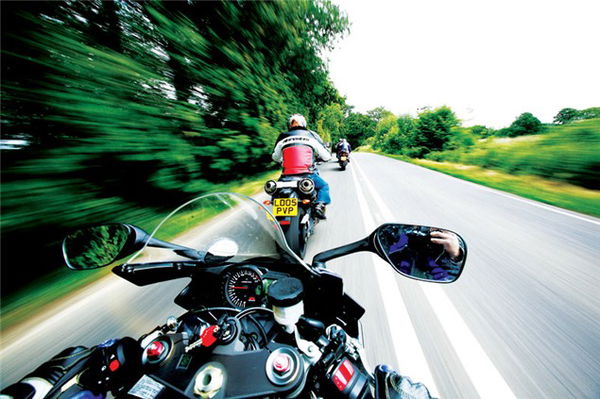At last, a government safety campaign that recognises motorcyclists!
The governments Road Safety statement sets out 74 points to improve road safety for all UK road users, but do the motorcycle points go far enough

THE UK government has today published a paper that it hopes will pave the way to safer UK roads for all users, from infants in child-seats to motorcyclists as some of the vulnerable road users.
The aim of the paper is to set out a road map for safer roads by approaching a cradle-to-old age approach to traffic safety, increasing educational spending in schools and local initiatives, and changing some licence rules for learner and newly qualified drivers.
They are even looking to implement a stepped driving licence – like the A2 route to a full motorcycle licence – and even banning new drivers from the roads during night-time. Another idea is to prevent car drivers from taking their test until a minimum number of hours behind the wheel have been completed, an idea I think we can all agree would be a big step forward.
Sadly, the paper does not list the widely held belief – within the motorcycle fraternity anyway – that motorists should have to take a motorcycle CBT, but we can only hope that this idea will be put in front of the powers that be sooner rather than later!

For motorcyclists, changes include being limited to a twist and go motorcycle if that’s the type of bike you completed your CBT on – currently you can complete the CBT on an automatic motorcycle and then go on and legally ride a geared bike with no further training required.
The paper also speaks about the need to help riders make better decisions when choosing what clothing to wear when they ride a motorcycle, although it doesn’t make mention of a rule for a minimum level of protection.
The plan also aims to promote post-test training like the Enhanced Rider Scheme (ERS). The ERS syllabus has had a refresh and now includes seven core post-test and 12 optional modules that riders can take if they wish. Sadly, the paper also doesn’t mention if they are to pressure insurers to offer bigger discounts for riders completing all the modules, which would surely be the best way of boosting the number of riders taking the course.
Along the theme of better training pre-test, the report lists the output from a recent public consultation and the measures it is going to implement to help achieve the goals. They are: Strengthened standards of training for motorcycle instructors and how they are quality assured - this means quality assuring all approved motorcycle training courses (including CBT, DAS, and any future Progressive Access Training courses) and completing the following:
• Updating the Compulsory Basic Training (CBT) syllabus including a new requirement for a theory test;
• Restricting learner riders to automatic motorcycles only, if that is what was used during CBT - and how this information may be recorded;
• Consulting on how riders with an automatic only CBT could upgrade their entitlement;
• Introducing a system for motorcycle training schools to be given recognition for consistently high standards - this will develop criteria for earned recognition with the training industry; and
• Developing the functionality of the Find Your Nearest service on Gov.UK.
The paper also recognises that whether riding for work of for pleasure, safety is the number one concern, so are pledging £208,000 to the DfT’s THINK! team and the DVSA so they can deliver safety advice to young riders and those using their bike for pleasure.
Summary of actions for Motorcycles
Continue to promote the importance of helmets and their correct usage through the DfT SHARP programme |
In response to a consultation DVSA will explore the possibility of developing a package of measures to improve the motorcycle training regime once Parliamentary time allows |
Promote DVSA's Enhanced Rider Scheme and increase the uptake of post-test motorcycle training |
Develop a training framework/syllabus to encourage riders who complete CBT but do not go on to take full test training to undertake further training |
Work with the motorcycle industry to explore how to encourage the use of protective equipment and furthermore explore the scope for new protective equipment for vulnerable road users that can reduce post-crash collision severity |
Commission a review of the behaviour of drivers and riders in The Gig Economy |
Highways England to deliver safety advice to leisure riders |
Funding RoSPA to deliver an online guide on how to organise and conduct group motorcycle ride outs |












